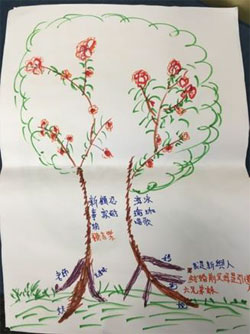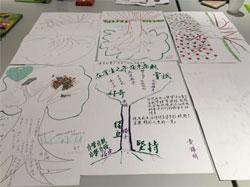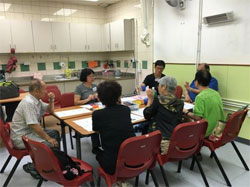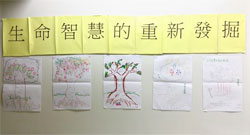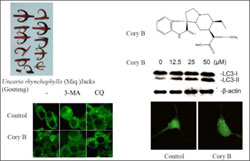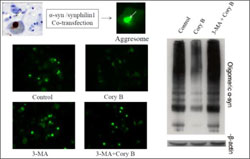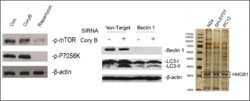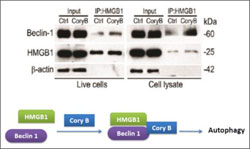Two leading scholars have been invited to deliver public lectures on Life Quality of Elders organized by the Research Grants Council with the Hong Kong Central Library on 25 September 2016 (Sunday). Details of the lectures are as follows:
| Topic | Speaker | Time |
|---|---|---|
| Life Stories of Wise Elders: Lived Elderly Wisdom in the Hong Kong Chinese Context | Dr Esther Oi Wah Chow (Associate Professor, Department of Applied Social Sciences, City University of Hong Kong) | 2:30 pm - 3:30 pm |
| Neuroprotective Traditional Chinese Medicine Relieve the Progression of Parkinson's Disease | Professor Min Li (Professor, School of Chinese Medicine, Hong Kong Baptist University) | 3:30 pm - 4:30 pm |
Venue: Lecture Theatre G/F, Hong Kong Central
Library (Location
Map)
Language: Cantonese
Free admission on a first-come, first-served
basis.
For enquires, please contact us at 2524
3987 or rgc@ugc.edu.hk.
First Session
Topic: Life Stories of Wise Elders: Lived
Elderly Wisdom in the Hong Kong Chinese
Context
Speaker: Dr Esther Oi Wah Chow
Time: 25 September 2016 (Sunday) 2:30pm
- 3:30pm
|
Brief introduction: Consistent with the lifespan perspective,
individuals create unique life stories
capturing their authentic identity.
They continue to tell and revise their
remembered past as they age. The objective
of this presentation is to demonstrate
how individual trajectories of psychological
well-being can be understood in life
context: individuals' life stories
reveal how they are both constructed
and being re-constructed of developmental
forces over time. In-depth interviews
were conducted to tap into the wisdom-related
experiences of 16 participants, who
were nominated as wise elders based
on the findings of an exploratory
study of conceptions of elderly wisdom.
Three main themes were identified:
values and life philosophies, pragmatics
of life and individual attributes.
Critical life experience and reflection
were keys for elders to attain life
wisdom in creating positive well-being
across adulthood. Characteristics
of individuals' life stories, such
as, degree of coherence, level of
integration, and meaning-making, have
implications for well-being. About the Speaker: Dr Esther Chow is CADENZA fellow, an associate professor and the Programme Leader of Bachelor of Social Sciences (Social Work), City University of Hong Kong. She is a registered social worker and a social work educator with extensive clinical and research experiences in social gerontological practice. After receiving her master and doctoral degree from University of Hong Kong, she has recently completed a postgraduate diploma and a master degree in Narrative therapy and community work from the University of Melbourne and Dulwich Centre, Australia in narrative practice. She has collaborated with not-for-profit organizations to conduct knowledge transfer activities on evidence-based practice. Her current research interests include narrative practice, life adversities and wisdom, self-help and mutual-aid, spirituality and recovery, resilience and culture. |
Tree of Life
Forrest of Life (1)
Group members were talking about their tree of life during sessions
Forrest of Life (2) |
Second Session
Topic: Neuroprotective Traditional Chinese
Medicine Relieve the Progression of Parkinson's
Disease
Speaker: Professor Min Li
Time: 25 September 2016 (Sunday) 3:30pm
- 4:30pm
|
Brief introduction: Parkinson's disease (PD) is a common neurodegenerative disease in the elderly with the mean onset age around 60 to 70. Intense loss of dopaminergic neurons in the substantia nigra pars compacta is the main pathological feature of PD. The prevalence of PD in China is the top of the world, and it is estimated that more than 6.5 million people will suffer from PD in 2030. The prevalence of PD among aged ≧65 is about 1-2% in Hong Kong. Although there is no disease called PD in traditional Chinese medicine (TCM), there are plenty of herbal formulas or relieving methods focusing on the PD-like symptoms, such as resting tremor, rigidity, bradykinesia and loss of postural reflexes. PD is considered as a combination of -deficiency of origin- and -excess of superficiality- based on TCM theory. TCM plays important roles in relieving the side effect of western medicine as well as slowing down the progression of PD by TCM clinical practice holistically (i.e. syndrome differential treatment principle 辨證論治). Currently, lots of basic and clinical research studies have suggested that TCM and its active components could promote the clearance of neurotoxic protein aggregates by inducing autophagy which protects dopamine neurons in PD. The speaker will introduce her group-s latest research findings on the neuroprotection of TCM for treating PD. About the Speaker: Professor Min Li is a Chinese medicine expert and the director of Teaching and Research Division in the School of Chinese Medicine, Hong Kong Baptist University. She obtained a bachelor's degree from Henan University of Chinese Medicine in 1985, a master's degree from Guangzhou University of Chinese Medicine in 1988 in China, and a PhD degree from School of Medicine, Tokai University in 2001 in Japan. Currently, Prof. Li is also a director of Mr. & Mrs. Ko Chi-Ming Centre for Parkinson's Disease Research and an associate director of Clinical Division in the School of Chinese Medicine, Hong Kong Baptist University. Prof. Li was awarded as the distinguished female Chinese medicine practitioner by the China Association of Chinese medicine in 2007. Prof. Li-s research is focus on the investigation of the neuroprotective effects and molecular mechanisms of Chinese medicine on the neurodegenerative diseases including Parkinson's disease (PD) and Alzheimer's disease (AD), clinical study of the efficacy and safety of Chinese medicine in treatment of PD and AD, as well as on the discovery of natural autophagy inducers for neurodegenerative diseases from Chinese medicine. Prof. Li has been the Editor-in-Chief and member of the editorial board of 20 professional books; she has also published over 100 scientific papers, over 130 posters or oral presentations in the international conferences and obtained several US patents. |
Corynoxine B (Cory B) from Chinese Medicine Gouteng induced Autophagy in Neuronal Cells
Cory B promoted degradation of pathogenic α-syn species via inducing autophagy
Molecular mechanism of Cory B, mTOR-independent but Beclin-1-dependent manner
Cory B promotes Beclin 1-HMGB1 interaction |
